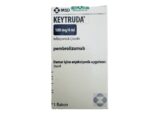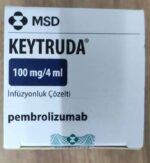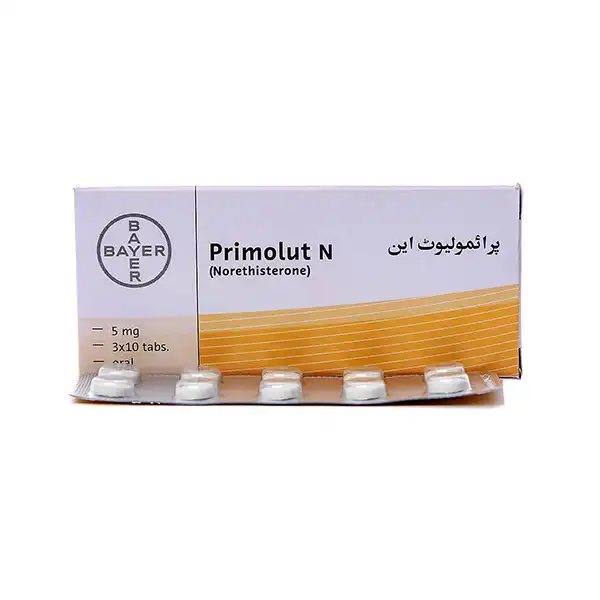

Keytruda 100mg Injection (Pembrolizumab)
₨38,000.00
Buy Imported Keytruda 100mg Injection (Pembrolizumab) at the best price in Pakistan with fast home delivery in all Pakistan and 100% Orignal Product. Order now from MedicineWalyDost.com.
Keytruda 100 mg Injection (Pembrolizumab) – Complete Product Guide
Keytruda 100 mg Injection, containing the active drug Pembrolizumab, is a widely respected immunotherapy used across numerous advanced cancers. As a PD-1 immune checkpoint inhibitor, it enables the immune system to recognize and attack cancer cells more effectively. In Pakistan, Keytruda is a critical component in modern oncology, combining promising results with manageable administration protocols.
Uses of Keytruda 100 mg Injection
This immuno-oncology injection is prescribed for several cancer types, including:
-
Non-small cell lung cancer (NSCLC) – used as monotherapy or in combination with chemotherapy
-
Melanoma – in both metastatic and adjuvant settings
-
Head and neck cancers – effective in recurrent or metastatic cases
-
Classical Hodgkin lymphoma in relapsed or refractory situations
-
Urothelial carcinoma – for advanced or metastatic bladder cancer
-
Cervical cancer, esophageal cancer, gastric cancer, and endometrial cancer – particularly in patients with specific genetic markers (like MSI-H or PD-L1 expression)
-
Tissue-agnostic use – for tumors with mismatch repair deficiency across different cancer types
Keytruda’s broad spectrum makes it a vital treatment in personalized cancer care, especially where traditional therapies fall short.
How Keytruda Works
Pembrolizumab blocks the PD-1 pathway, which cancer cells exploit to evade immune detection. By inhibiting this checkpoint, Keytruda reactivates T-cells, allowing them to identify and destroy cancer cells. This immunostimulatory action can result in long-lasting cancer remission in responsive patients.
Dosage and Administration
Standard Dosing
-
Adult dose: Typically 200 mg every 3 weeks, or 400 mg every 6 weeks depending on treatment plan and cancer type.
-
Formulation: Packaged in 100 mg vials for IV infusion.
-
Administration: Given via intravenous infusion over at least 30 minutes in a hospital or infusion center.
Handling & Missed Doses
-
Must be prepared by healthcare professionals under controlled conditions.
-
If a dose is missed, it should be rescheduled promptly—your oncologist will guide adjustments.
-
Treatment duration varies; it may continue until disease progression or unacceptable toxicity.
Common Side Effects of Keytruda
While many patients tolerate Keytruda well, common side effects can include:
-
Fatigue, nausea, diarrhea, loss of appetite
-
Skin rash or itching
-
Cough, shortness of breath, mild fever
-
Muscle or joint pain
-
Headache
These are usually mild to moderate and manageable with supportive care.
Serious Side Effects and Immune-Related Risks
Pembrolizumab can cause immune-mediated effects that require immediate attention:
-
Pneumonitis – respiratory symptoms like persistent cough or breathlessness
-
Colitis – abdominal pain or severe diarrhea
-
Hepatitis – things like yellowing of eyes or dark urine
-
Endocrine issues – thyroid dysfunction, adrenal insufficiency, or new-onset diabetes
-
Nephritis – signs such as reduced urine output or swelling
-
Severe infusion reactions – fever, difficulty breathing, or low blood pressure during administration
Timely medical intervention can often resolve these complications.
Precautions Before Starting Keytruda Injection
-
Conduct baseline screening (liver, kidney, thyroid function; blood counts; hormone levels)
-
Evaluate for history of autoimmune conditions or organ transplant
-
Advise women of childbearing age to use effective contraception during and for at least 4 months after therapy; avoid during pregnancy and breastfeeding
-
Avoid live vaccines during treatment and up to at least 4 months afterward
-
Inform your oncologist of all medications and supplements to rule out interactions
Contraindications
Keytruda should not be used if:
-
You have a known allergy to Pembrolizumab or any component
-
You are pregnant or breastfeeding
-
You have uncontrolled autoimmune disease or recent organ transplant failure
-
You are receiving live vaccines during treatment
Keytruda 100 mg Injection Price in Pakistan
Buy 100% Orignal Imported Keytruda Injection at Best Price in Pakistan at MedicineWalyDost.com
Frequently Asked Questions (FAQs)
Q1: Which cancers are treated with Keytruda?
Keytruda treats NSCLC, melanoma, head and neck cancer, Hodgkin lymphoma, bladder cancer, and certain stomach, cervical, esophageal, and endometrial cancers with specific genetic biomarkers.
Q2: How is Keytruda administered?
It is administered as an intravenous infusion every 3 or 6 weeks in a medical setting.
Q3: Can it be used during pregnancy?
No. It is not recommended during pregnancy, and women should use contraception during and after treatment.
Q4: What major side effects should I report?
Serious symptoms like trouble breathing, severe diarrhea, persistent cough, jaundice, or sudden fatigue must be reported immediately.
Q5: Where can I buy genuine Keytruda in Pakistan?
Reliable cancer pharmacies or hospital dispensaries are the best source. Always verify authenticity and availability.
Final Summary
Keytruda 100 mg Injection (Pembrolizumab) is a breakthrough immunotherapy for several advanced cancers. It empowers the immune system to target cancer more effectively and may result in long-term benefits for responsive patients. While generally safe, regular monitoring and quick response to side effects are essential. Available in Pakistan with a premium price tag, Keytruda should be obtained through authorized medical channels and administered under oncologist supervision for optimal outcomes.




🚚 Shipping & Delivery Partners
At MedicineWalyDost.com, we deliver medicines through trusted courier services including TCS, Leopard Courier, Daewoo Fastex, and inDrive to ensure safe, timely, and reliable delivery across Pakistan.
The courier partner for each order is carefully selected based on:
Customer location and city coverage
Delivery speed and route availability
Nature of the product (sensitivity, urgency, or handling requirements)
This approach allows us to use the most suitable courier for every order, ensuring your medicine reaches you in the best possible condition.
📦 Secure & Discreet Packaging
All medicines are packed securely with proper protection and confidential packaging to maintain privacy during transit.
⏱ Delivery Timeline
Orders are usually dispatched within 1–2 working days after payment confirmation
Delivery typically takes 2–3 working days, depending on location and courier service
📍 Nationwide Coverage
With multiple courier partners, we provide wide coverage across Pakistan, including major cities and selected remote areas.
Once your order is dispatched, tracking details are shared for your convenience.






